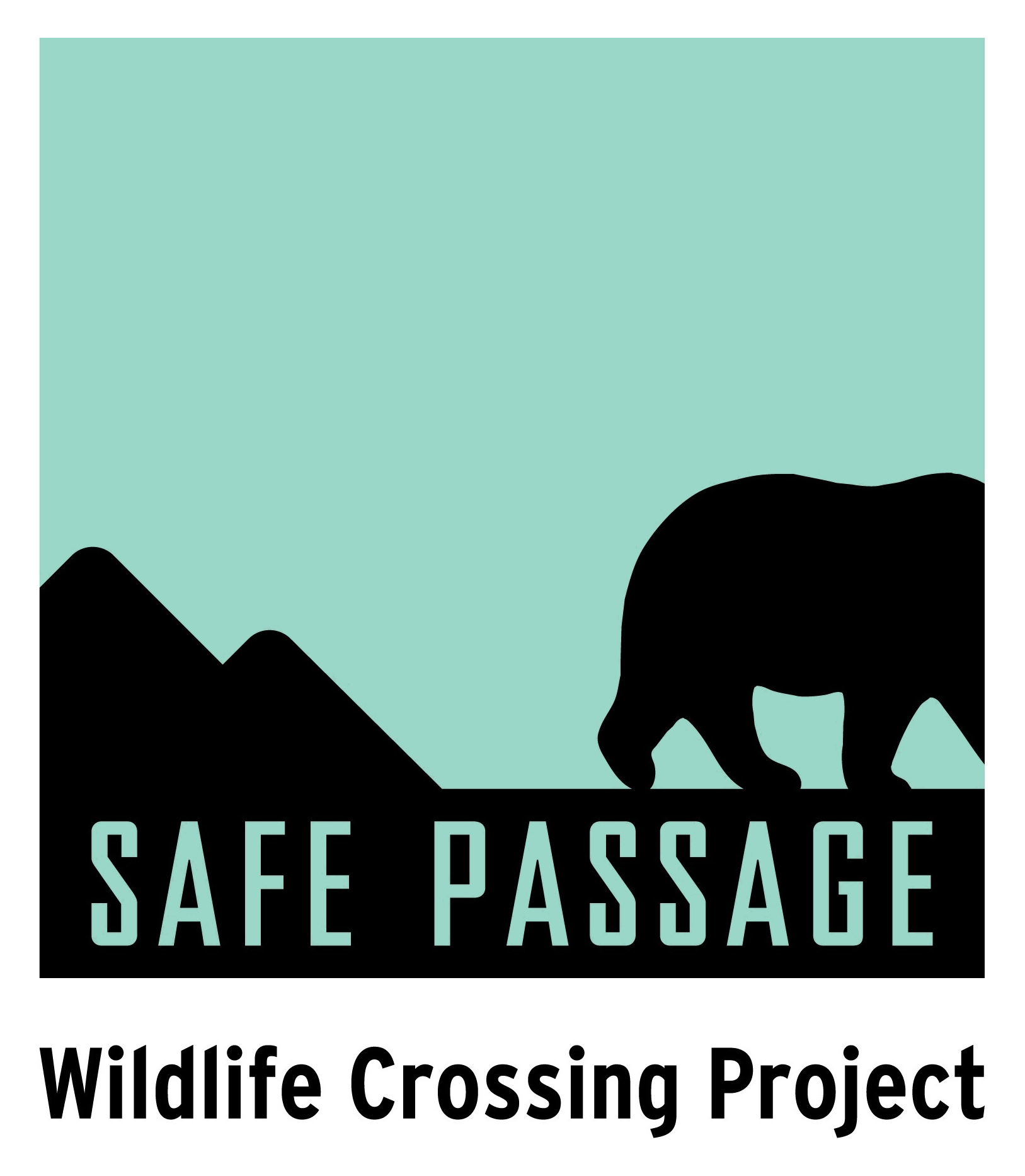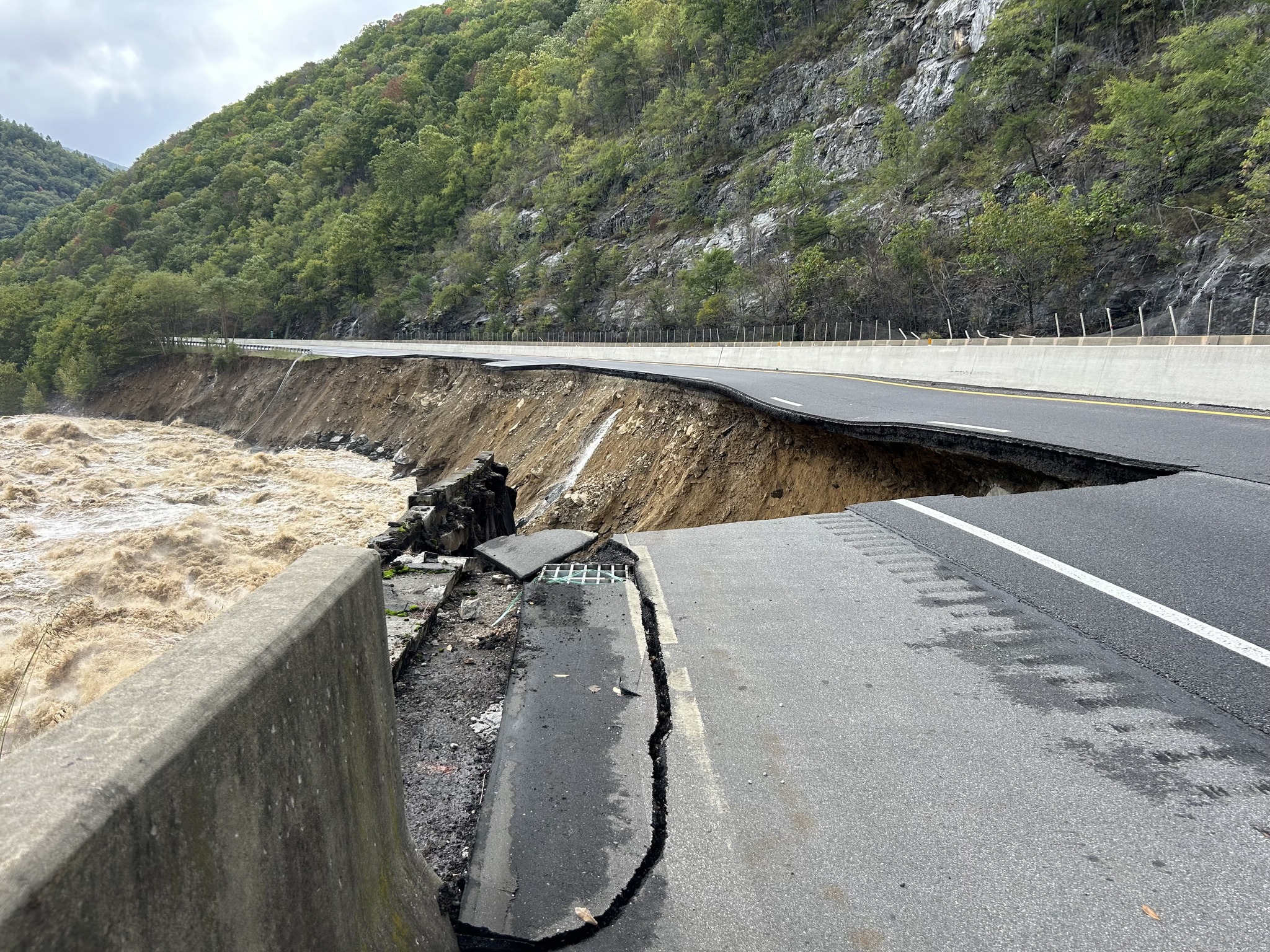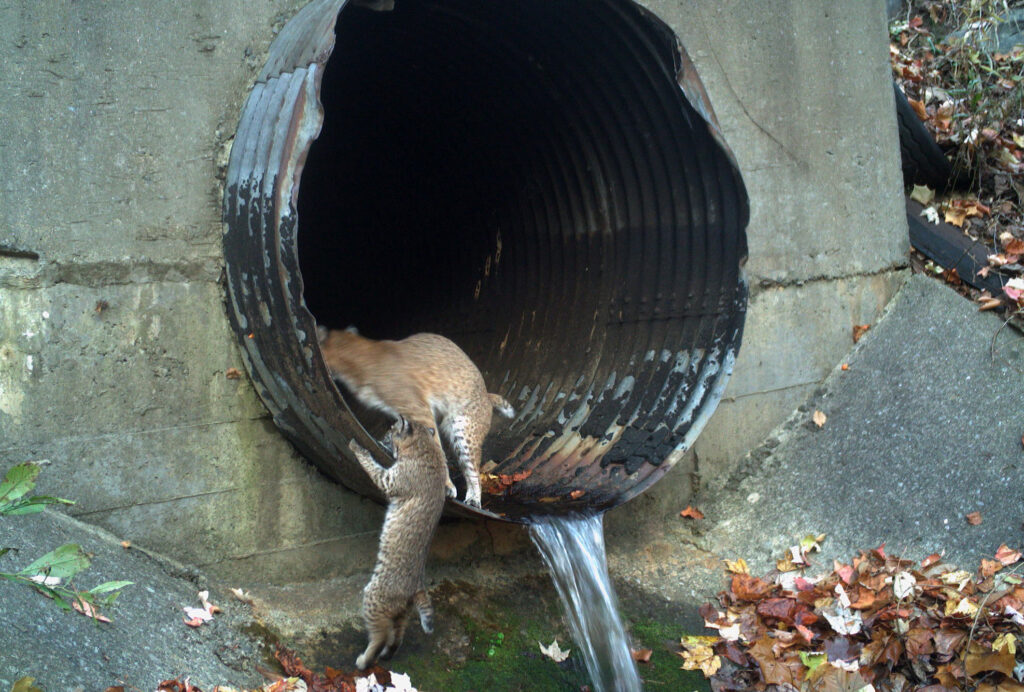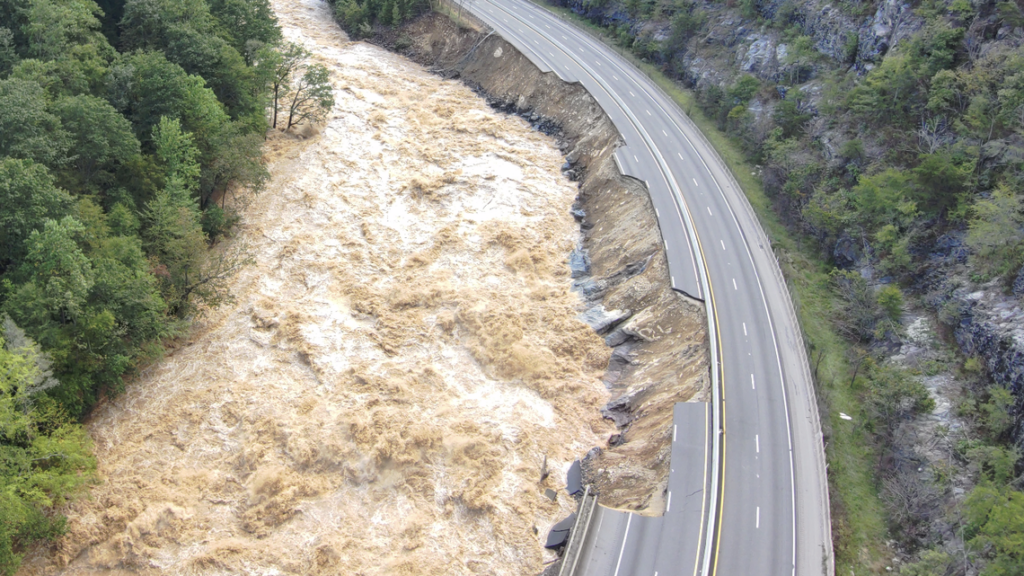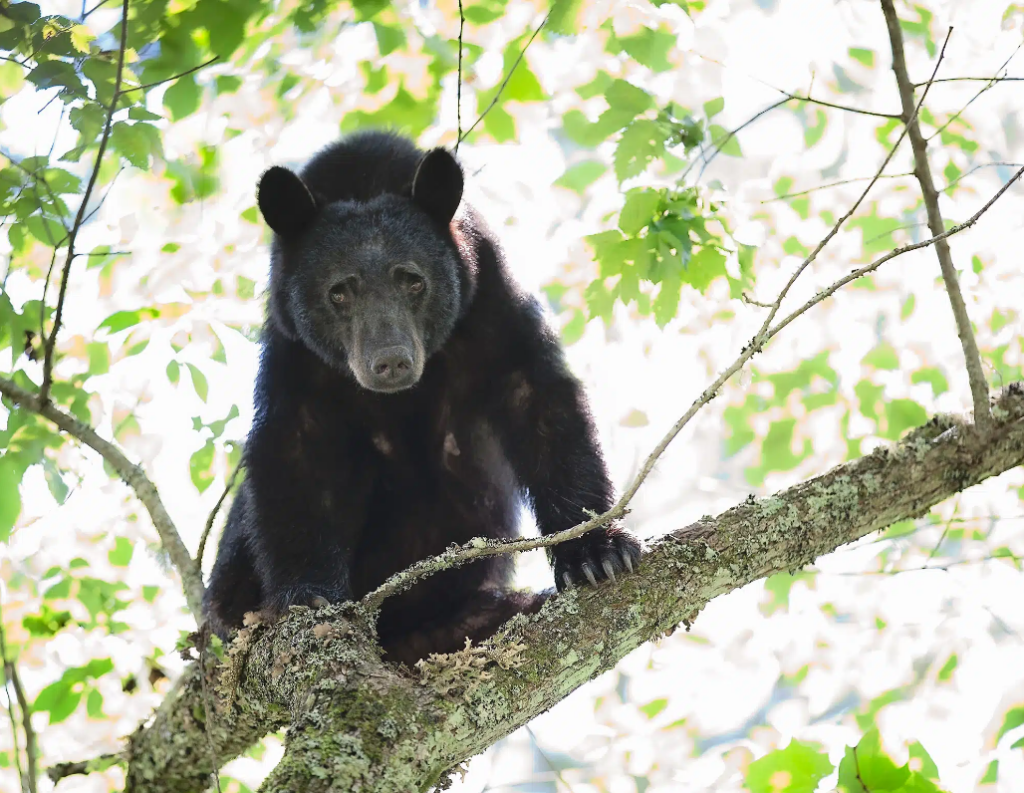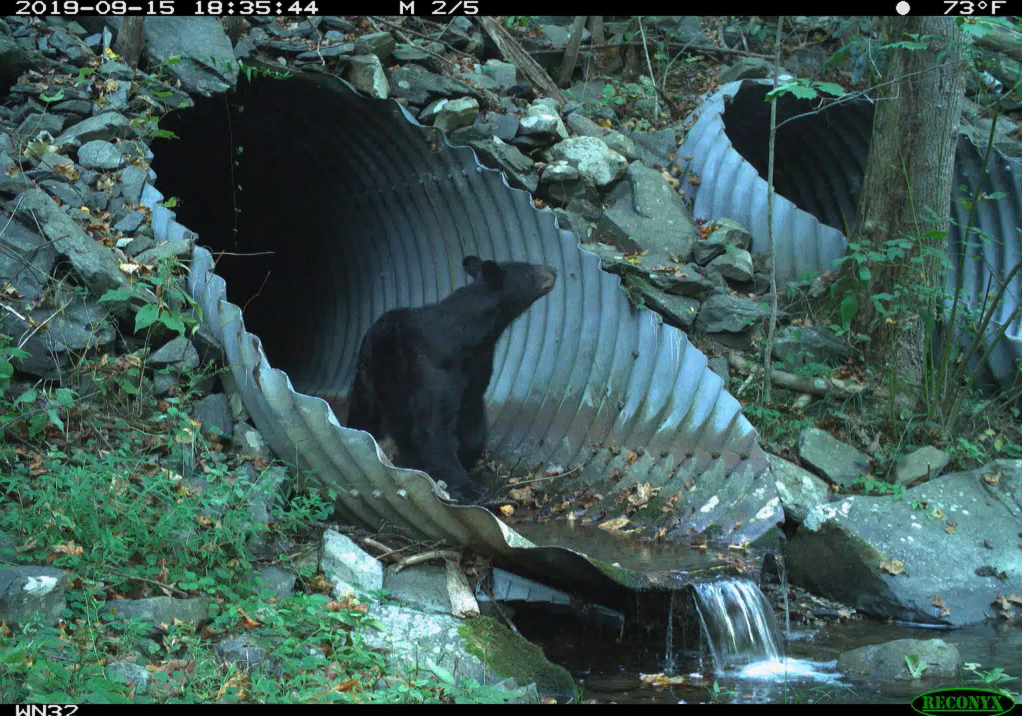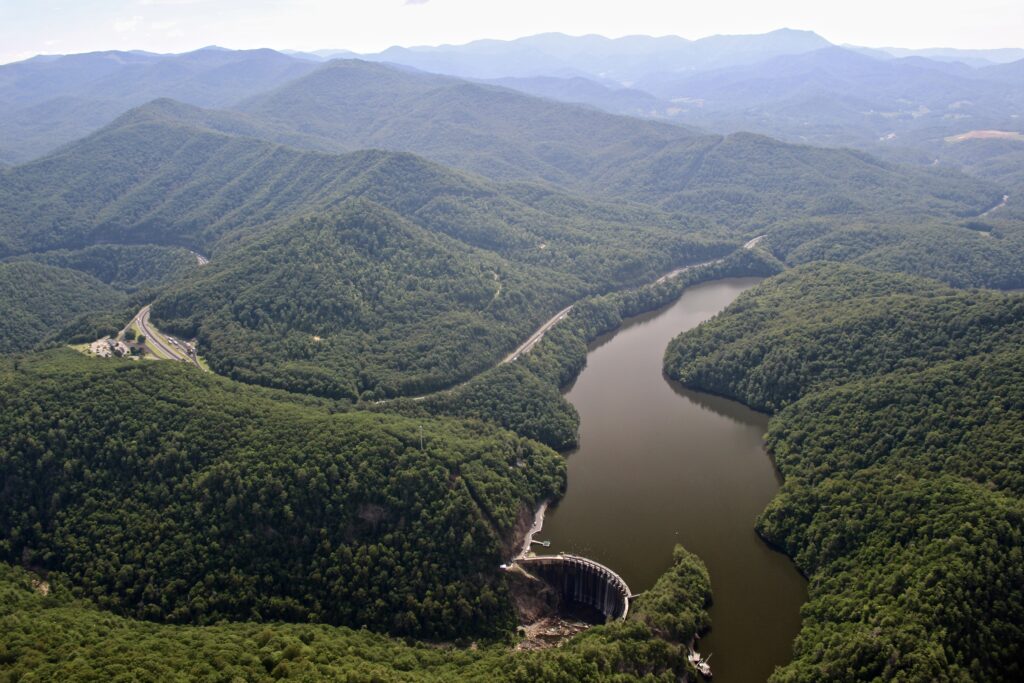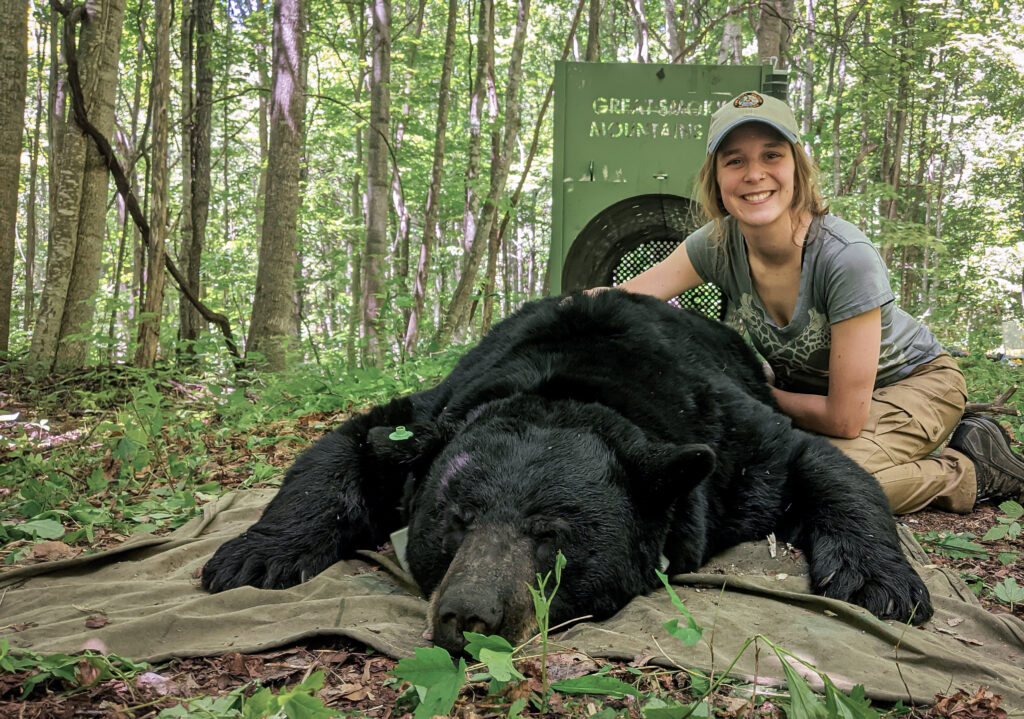By Jennifer Fullford, Smokies Life lead editor
This article originally appeared in Smokies LIVE, the blog of Smokies Life, a nonprofit partner of Great Smoky Mountains National Park and steering committee member of Safe Passage.
Roads and ecology seem to be at opposing ends of the environmental spectrum. How can roads be ecological? A growing group of scientists is studying how they affect ecosystems, and many advocates and wildlife specialists are hopping on the wagon.
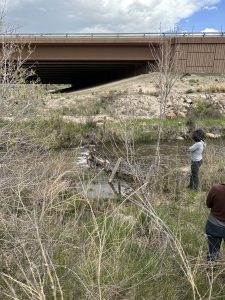
The relatively nascent field of road ecology looks at the impact of transportation on ecosystems. All those roads, byways, and paved pathways—four million miles in the US—that build in convenience for humans also lead to less positive consequences for animals and land. An estimated one million animals are killed on US roads every day.
Across the country, including in the Smokies, a new road ecology ethos is producing experts who are studying how our byways change the landscape—be it habitat, connectivity for animals, or the health of wildlands. It’s predicted that commerce will continue to fuel future growth in transportation, which has new road ecologists even more keenly attuned to outcomes in the natural world.
“To us, roads signify connection and escape,” writes journalist and award-winning author Ben Goldfarb. “To other life forms, they spell death and division.”
Goldfarb gave the keynote address at the recent International Conference on Ecology and Transportation, held this May in Denver. ICOET attracts road ecologists and enthusiasts worldwide, from the desert of the US Southwest to locales in Africa, Latin America, and Norway. Goldfarb is considered the movement’s poster child, racking up awards for his recent book, Crossings: How Road Ecology is Shaping the Future of Our Planet (W. W. Norton 2024). He loosely defines road ecology as the study of how life changes for plants and animals when a road appears nearby.
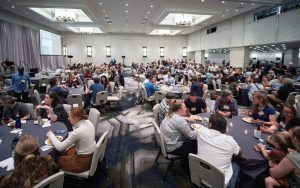
“Writers have always been sensitive to issues around roads and the environment,” Goldfarb said in his ICOET opening address. As an example, he referenced Mary Oliver and her poem, The Black Snake, which starts with a universally accepted evil—roadkill.
When the black snake
flashed onto the morning road,
and the truck could not swerve–
death, that is how it happens.
But Goldfarb is not all doom and gloom. In fact, he gives talks that inspire a few smiles because of the dichotomy between the very human joy of wanderlust versus its environmental impact, which he emphasizes entangles more than just large animals.
“Remember the herps and turtles, reptiles and snakes!” he said to chuckles of recognition from the ICOET’s crowd, many of whom are scientists. Later, the ICOET schedule included a movie about tarantulas and a panel discussion focused solely on spiders, “Arach-No-phobia: Perspectives and Results From a Unique, Collaborative Study of Tarantulas in Southeast Colorado.” Other smaller animals also got their due throughout the conference week in May. Several presentations attracted large crowds about projects involving newts and bats, whose study has spun off its own genetic identification service at Northern Arizona University (Species From Feces).
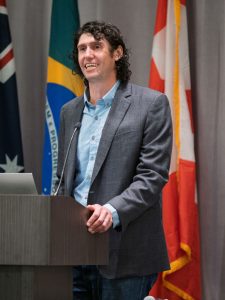
Since 2003, ICOET has become a biennial point of reference and opportunity to learn and network for not only the people who study, govern, and advocate for better transportation, but also for those who are finding entrepreneurial ways to support systems less harmful to biodiversity.
An entrepreneurial spirit is rising with the use of technology and data analysis. Dozens of businesses, such as HDR Inc. in Coopers Landing, Alaska, and ERTECH manufacturing in Alameda, California, signed on this year as conference sponsors. Animex International presented its work producing fencing to decrease mortality rates of smaller animals that cross big roadways. Those businesses sit with a growing list of communities, states, and countries that are striving to, firstly, gather data and, eventually, create better infrastructure to reduce wildlife–vehicle collisions and support more ideal habitat.
Lest it’s understated, road ecologists do not deny the benefits of transportation networks: avocados from California, pizza deliveries to our door, easy access to faraway places. There’s little argument that transportation is an essential component of commerce, recreation, and basic human connection. And, when considered thoughtfully and holistically, it can improve the lives of human and animals. More strategic approaches to transportation are a key component of the greater road ecology movement.
How people are innovating is shaped by place and, oftentimes, passion. Take, for instance, Jessica Moreno, conservation science director of the Coalition for Sonoran Desert Protection, who says she sees people become inspired by simply seeing wildlife camera footage and photos of difficult crossings in the desert. The coalition is celebrating a successful collaboration to remove old barbed-wire fencing on private land. Since 2021, the effort has removed about 70 miles of redundant fencing.
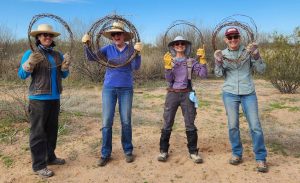
“The Desert Fence Busters project is something that we started recently, and we have employees and volunteers from Arizona Game and Fish, hunting groups, nonprofits like ourselves and the Tucson Bird Alliance, previously known as the Tucson Audubon Society, students, Sonora National Park—the gambit,” she said. “It’s amazing. We’ll have 65-plus volunteers each trip.”
Removing harmful fencing seems like a no-brainer, yet it is evidence that the scope is widening for inexpensive, outside-the-box efforts that can make a difference.
Projects in Appalachia also earned podium-time. One by Liz Hillard of Asheville, North Carolina, for Wildlands Network took stock of road underpasses for crossings by timber rattlesnakes (Crotalus horridus) and other species of concern in Southern Appalachia. For rattlers, a female first becomes fertile around nine years old and generally won’t produce offspring each year, she said, so keeping the females alive to propagate the species is essential.
“We’re behind, but the work needs to start now if we want to save our species, as they need to move, and we want to help them do that,” Hillard said.
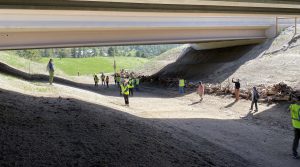
Her work has also helped Safe Passage, a coalition in Western North Carolina and East Tennessee supported by Smokies Life, that has been doing road ecology groundwork for more than seven years, a period that has seen a surge in advocacy. She and Steve Goodman of the National Parks Conservation Association conducted field research over three years to evaluate how roadways outside Great Smoky Mountains National Park influence the connectivity of habitat for black bear, white-tailed deer, and elk. Their work resulted in more than a hundred specific recommendations for departments of transportation to improve wildlife permeability in the Pigeon River Gorge, some of which are now being implemented.
For many professionals in road ecology, more sophisticated and safer transportation and land-planning projects around the US and elsewhere are more than simply possible—they’re coming to fruition. And in the words of Thomas Lovejoy, famed American ecologist, “The choice is not between wild places and people, it is between a rich or impoverished existence . . .”
Recommended reading/viewing
Watch the ICOET 2025 presentations on YouTube. Read Rewilding Institute’s review of Goldfarb’s 2024 book on road ecology. Check out Smithsonian magazine’s excerpt from Goldfarb’s book.
